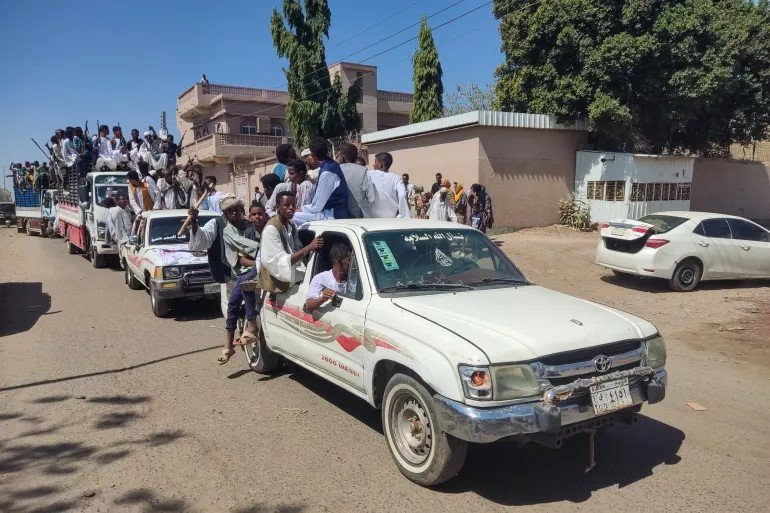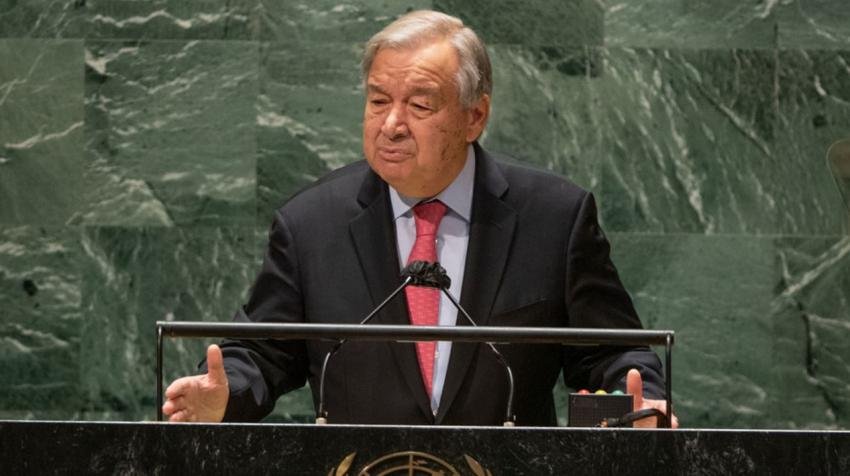Introduction to the Security Council’s Stance
The recent press statement issued by the United Nations Security Council regarding the ongoing conflict in Sudan underscores a decisive response to the emerging crisis in the region. This declaration comes in light of alarming developments, particularly the establishment of a parallel governing authority by the Rapid Support Forces (RSF), which is viewed as a direct challenge to the legitimacy and sovereignty of Sudan’s established government. The Security Council has expressed unanimous concerns over these actions, categorically rejecting any attempts that undermine the country’s unity and territorial integrity.
The context of this statement is critical for understanding the international community’s stance on the situation in Sudan. The RSF, initially formed for the purpose of securing stability and assisting in humanitarian efforts, has increasingly taken on a role that threatens the governance and constitutional order of the nation. This shift has led to increased violence and instability, necessitating a coordinated response from the global community. The Security Council’s firm position reaffirms its commitment to the sovereignty of Sudan while advocating for a return to dialogue and a peaceful resolution of the conflict.
Furthermore, the Council’s emphasis on unity is particularly pertinent as it seeks to mobilize all stakeholders within Sudan to engage constructively in negotiations. The Security Council is calling for comprehensive humanitarian access to support the millions affected by the conflict. By stressing the need for a united front, it seeks to mitigate the humanitarian crisis and ensure that assistance reaches those in dire need without barriers. Ultimately, the Council’s approach aims not only to maintain international peace and security but also to foster a conducive environment for long-term stability and recovery in Sudan.
Concerns Over Stability and Humanitarian Crisis
The ongoing conflict in Sudan, particularly the actions of the Rapid Support Forces (RSF), has raised significant concerns regarding the country’s stability and territorial integrity. The Security Council has closely monitored the deteriorating situation, particularly in regions such as El Fasher where the humanitarian crisis is palpable. The armed conflict has severely impacted civilians, leaving many in desperate need of assistance and protection.
In El Fasher, reports indicate a dire humanitarian landscape exacerbated by violent confrontations. Access to basic necessities, including food, clean water, and medical care, has been significantly compromised. With the ongoing fighting disrupting supply routes and humanitarian operations, civilians face heightened vulnerabilities. The threat of food scarcity is increasing, with some areas already on the brink of famine. The International Organization for Migration has reported that millions are currently experiencing acute food insecurity, necessitating immediate and sustained humanitarian access to avert further deterioration of conditions.
The implications of the RSF’s actions extend beyond immediate violence; they encapsulate a broader threat to Sudan’s social and economic fabric. As communities remain fragmented and insecure, the potential for regional instability looms large. The Security Council’s resolutions highlight the urgency for coordinated international efforts to provide humanitarian aid and support peace initiatives within the country. Without a concerted response, the plight of the Sudanese people could worsen, leading to untold suffering and loss of life.
In light of these challenges, the call for unity among international stakeholders becomes paramount. The Security Council emphasizes the necessity of humanitarian access as a fundamental right for the affected populations and urges all parties to prioritize the safety and well-being of civilians. A collaborative approach is imperative to ensure that aid reaches those in need and to contribute to restoring stability in Sudan.
Call for Dialogue and Political Resolution
The ongoing conflict in Sudan has necessitated a strong and unified response from the international community, particularly from the United Nations Security Council. In light of the escalating violence and humanitarian crises, the Security Council has emphatically called for all parties involved in the conflict to engage in constructive dialogue. This dialogue is not merely an option; it is a critical necessity aimed at achieving a sustainable political resolution.
An inclusive discussion involving various political and social actors is vital. This means that all relevant stakeholders, including representative groups from marginalized communities, women’s organizations, and civil society, should be part of the dialogue process. Their participation is essential to ensure that the resulting political solutions are comprehensive and democratic, ultimately steering Sudan towards a government elected by the people. The transformation of the political landscape is essential for fostering long-term stability and addressing the root causes of the conflict.
Moreover, engaging in dialogue and pursuing a political resolution must also be accompanied by a steadfast commitment to international law and humanitarian standards. Upholding these principles is crucial for safeguarding the rights and dignity of civilians caught in the crossfire. Ensuring that humanitarian access is prioritized will enable aid organizations to deliver essential assistance effectively, alleviating the suffering of those affected by the conflict. The Security Council’s insistence on adherence to humanitarian principles emphasizes the importance of protecting vulnerable populations under the current circumstances.
In sum, the call for dialogue, political resolution, and compliance with international humanitarian law constitutes a multi-faceted approach that not only aims to address the immediate crises but also lays the groundwork for a stable and democratic Sudan in the future. The international community, led by the Security Council, must remain steadfast in supporting these efforts to prevent further escalation and pave the way for peace.
Global Responsibility and Support for Sudan
The situation in Sudan requires a collective international response, emphasizing the global responsibility to support the nation in its quest for peace and stability. The United Nations Security Council has recognized the urgent need for unity among member states, urging them to avoid actions that could exacerbate the ongoing conflict. In this context, it is essential for the international community to be mindful of their influence and actions, focusing instead on fostering an environment conducive to dialogue and peacebuilding.
In light of the complexities that characterize the Sudanese conflict, the Security Council remains committed to upholding international law and existing resolutions that guide the conduct of member states. This commitment reflects not only a legal obligation but also a moral imperative to protect human rights and promote humanitarian access to those affected by the conflict. It is crucial to ensure that humanitarian aid flows uninterrupted, allowing aid organizations to reach vulnerable populations in need of essential services.
Furthermore, the role of the UN Secretary-General’s envoy is pivotal in these efforts, as it involves facilitating dialogues among the various parties involved in the conflict. The envoy’s engagement aims to bridge divides, promote understanding, and ultimately lead to a peaceful resolution that acknowledges the aspirations of the Sudanese people. The international community must unite in support of these initiatives, recognizing that effective partnerships can cultivate conditions for lasting peace.
In solidarity with the Sudanese people, the Security Council affirms its dedication to their hopes for a better future. This solidarity underscores the necessity for collective action, commitment to humanitarian principles, and respect for the agency of the Sudanese population in determining their path forward. The call for unity is not merely a reaction to the crisis, but an essential step towards building a sustainable and peaceful Sudan.




